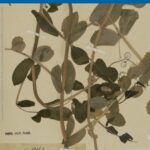 Institute for Economic and Social History at the Univ. of Vienna; Brooke Penaloza-Patzak and Tamara Fernando (Web)
Institute for Economic and Social History at the Univ. of Vienna; Brooke Penaloza-Patzak and Tamara Fernando (Web)
Time: 29.06.-01.07.2023
Venue: Univ. Wien, Universitätsring 1, 1010 Wien, „Green Lounge“
Programme (PDF)
Work on how material objects and collections are involved in the stabilization, transfer, loss, and transformation of knowledge has become one of the most dynamic spheres of inquiry in the history of science. This notwithstanding, conversation still tends to be overly determined by contemporary disciplinary boundaries and enlightenment-mode preoccupations about who and what constitutes science. There is a curious lack of discourse between scholars working on objects, specimens, and collections in what we now consider natural history and the natural sciences on one hand, and the human sciences on the other. And while research into the former is increasingly becoming a mainstay in the history of science, the latter is only still largely dismissed as the purview of anthropologists working on the history of their own discipline. These trends obscure vitally important information about how objects intertwine ideas and practices in different spheres of knowledge. The time is ripe to talk about how object-based practices and ideas figure into the history of knowledge in, and more emphatically between, the natural and human sciences broadly conceived.
This special issue brings historians of science focused on natural history, botany, ethnography, biogeography, environmental and social and economic history, together with scholars in archaeology, paleontology and cultural anthropology to talk about how objects, specimens, and collections have been involved in the transfer, loss, and transformation of specialized knowledge around the world from 1000 BCE to today.
Special areas of interest include but are not limited to the ways and means by which objects: are transformed into specimens and then data in different fields of knowledge; in historical collections are utilized for new research in contexts other than those for which they were originally collected; can facilitate, mediate, or impede methodological, theoretical and or epistemic transfer; can help us reconstruct the cultivation of expertise and specialization and division of knowledge; as scientific evidence confound, transcend or complicate nature/culture dichotomies; are involved in the transfer of ways of learning, ordering, demonstrating, exhibiting and or recording between different fields of knowledge.
